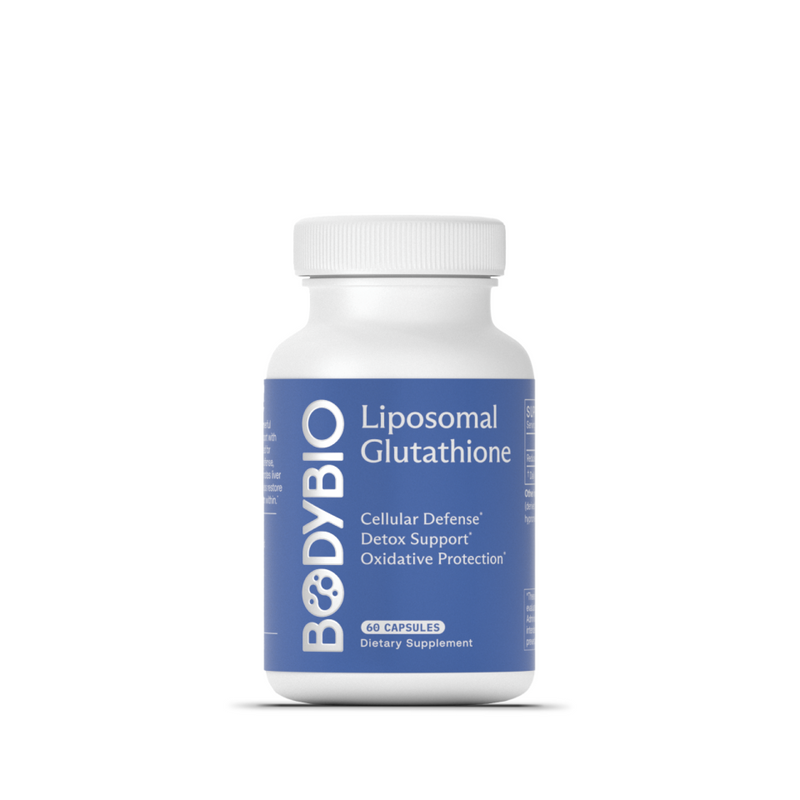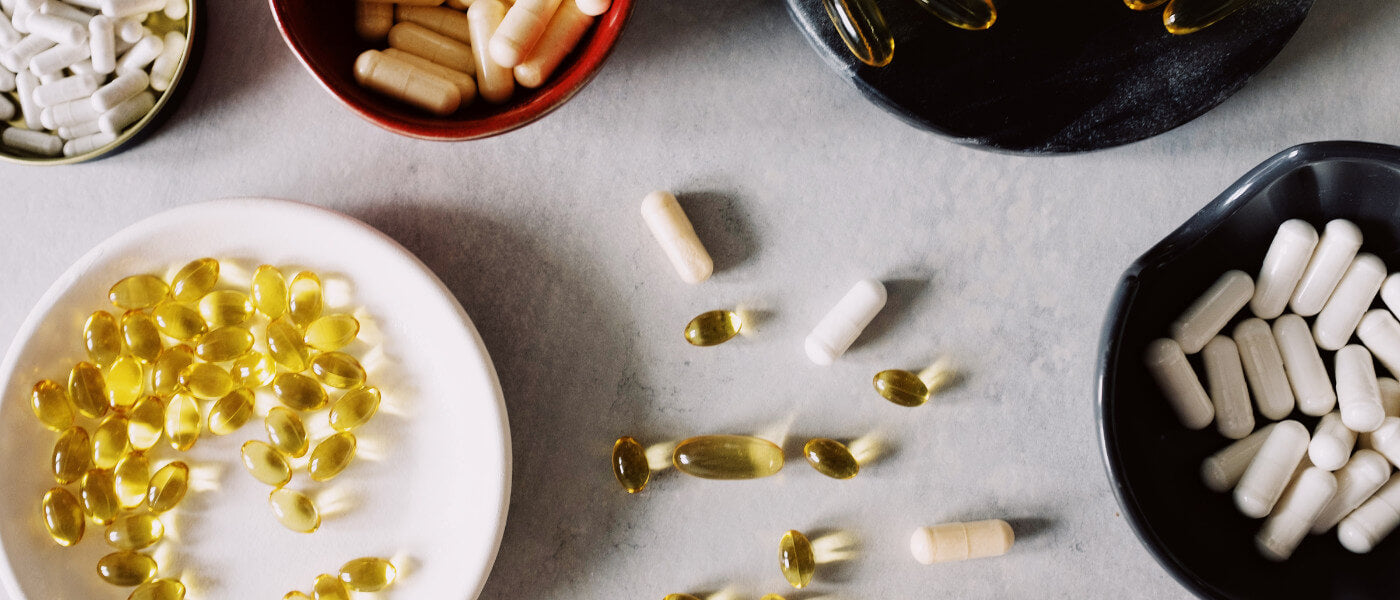Does Your Body Really Absorb Vitamins and Supplements?
Authors:

Dr. Thomas Wnorowski
PhD, CNCC Research Director, BodyBio & Biomedical NutritionistFeatured Product:

Liposomal Glutathione

Liposomal Glutathione
If you’re spending money on supplements, you should know how to maximize absorption so that you’re getting the most bang for your buck.
But how do you know your body is absorbing the vitamins and supplements you take every day? Absorption depends on a number of different factors:
- Your gut health
- The supplement formulation
- Medications, if applicable
- What you eat and drink with supplements.
Let’s take a closer look.
How Does Your Body Absorb Supplements?
Many factors go into how your body absorbs vitamins and supplements, but there are two key points to consider when maximizing nutrient absorption.
Factor 1: Your Gut Health
The body absorbs orally ingested supplements the same way it absorbs nutrients from your food and drink – primarily through the small intestine. There are exceptions however, with nutrients like butyrate, which are endogenously made in the colon by certain probiotic bacteria.
Medications, pathogens, and digestive components like stomach acid, digestive enzymes, and bile can all impact absorption.
With digestive components, high or low levels can affect absorption by either destroying some or all of the supplement, or alternatively, not being able to assimilate it well. For example, too much stomach acid may destroy some supplements before they can be absorbed, yet too little acid will not allow for good absorption of certain vitamins, like vitamin B12. Making sure your digestion is well-balanced is essential for good vitamin and supplement absorption.
Another possibility could be that gut pathogens are stealing the nutrients from your vitamins and supplements. Intestinal parasites are well known for stealing nutrients from your food and the same can happen with supplements. If you have a suspected pathogen issue, take this as a crucial reason to meet with your practitioner and begin appropriate treatment as soon as possible. Another concern of microbiome imbalance is that leaky gut could develop, also negatively impacting absorption [1].
Some medications could significantly impact vitamin and supplement absorption as well (and vice versa) so it’s always important to be mindful of understanding the appropriate dosage and timing.
Factor 2: The Vitamin/Supplement Itself
Did you know your body can absorb each vitamin or supplement differently? The ingestion type differs based on:
- Whether the vitamin or supplement is water-soluble or fat-soluble [2, 3].
- The formulation and delivery system of the vitamin/supplement
Water-soluble nutrients, like vitamin C, are technically more easily absorbed (as long as you’re adequately hydrated). However, that means they are also more easily excreted into the urine. Fat-soluble vitamins and supplements, like vitamin D and curcumin, need to be combined with a fat source for the most efficient absorption.
In terms of formulation, we can use different forms of magnesium as an example. Magnesium citrate is more easily absorbed by the small intestine than magnesium oxide, which is more likely to cause digestive upset for some people. On the other hand, it can also help with constipation. So even though the absorption rate is low, it still has beneficial uses.
If you’re familiar with vitamins and supplements, you’ll also know that they come in many different forms:
- Tablets
- Capsules
- Liquids
- Powders
- Gummies/Chewables
- Sprays
- IV
Different formulations work well for different people, but in general capsules tend to be more easily absorbed than tablets, and liquids and powders even more so (although they may be more quickly degraded by stomach acid).
IV delivery is certainly the most bioavailable option, directly accessing the bloodstream. But IV vitamins and supplements are not practical for most people. Gummies and chewables remain questionable to say the least, and are usually loaded with sugar and preservatives.
Tablets may be less absorbable than capsules because some tablets are either completely destroyed by stomach acid, or the binders and fillers used to hold them together during the journey through the stomach end up preventing good breakdown and absorption of the active ingredients in the small intestine. If you picture a huge multivitamin tablet, it might not be so surprising that the body can have trouble breaking that down.
Capsules can be a better option for absorption since their shell remains intact through the stomach. Then their shell is broken down by enzymes in the small intestine to dissolve easily absorbed particles into the bloodstream.
Liquids and sprays (and sometimes powders if liposomal) have the advantage of direct absorption in the mouth but can be messy and inconvenient to take. Remember, the least absorbed supplement is the one you forget to take, or throw away, because of a failed delivery mechanism.
How To Absorb Vitamins Better
Prioritize quality: If you know someone who claims they don’t get any benefits from taking vitamins at all, they are likely buying the cheapest available option, with very low bioavailability.
Quality vitamins and supplements:
- Will not have any extra fillers or additives.
- Have very straightforward, informational packaging.
- Often make it a point to tell you how they are handling bioavailability of the product.
- Aren’t the cheapest, but they deliver (pun intended).
Take vitamins and supplements with whatever will facilitate their absorption: For the fat-soluble vitamins A, D, E, and K, make sure you take them with a healthy fat source. With water-soluble vitamins, make sure you’re well-hydrated to absorb them well. Note that certain vitamins and supplements also work synergistically together, like vitamin D and magnesium, turmeric and black pepper, and calcium and vitamin K, so they are often paired up in supplement formulations.
Look for true liposomal supplements: Where applicable, look for liposomal supplements. Liposomal supplements have been shown to enhance bioavailability [4, 5]. The idea is to take the vitamin or nutrient and trap it in microscopic liposomes, essentially tiny fat bubbles. Liposomes may be used to protect sensitive compounds from degradation and ensure more targeted delivery.
For example, putting vitamin C into liposomal form makes it lipid soluble instead of water soluble, so it’s more easily absorbed into your cells (because cell membranes are made of phospholipids). This allows your body to hold onto and use more of the supplement instead of directing a large percentage to be excreted in the urine right away.
At BodyBio, we’ve prioritized advanced liposomal encapsulation technology for our Liposomal Vitamin C and Liposomal Glutathione. Liposomal supplements are usually liquids, but our proliposomal technology allows for capsules to release a powdered liposome that immediately forms a liposomal suspension with water. This means no messy liquids, and the liposome is only released once it reaches the intestines for the best absorption potential.
The Importance of Supplement Bioavailability
Supplement absorption is one of the most important factors to consider if you’re investing in vitamins and supplements. We’re obviously pro-supplement here at BodyBio, but only if the supplements you’re taking are actually getting into your cells and changing them for the better. That’s why we focus on making our supplements the most absorbable and the most convenient to take.
